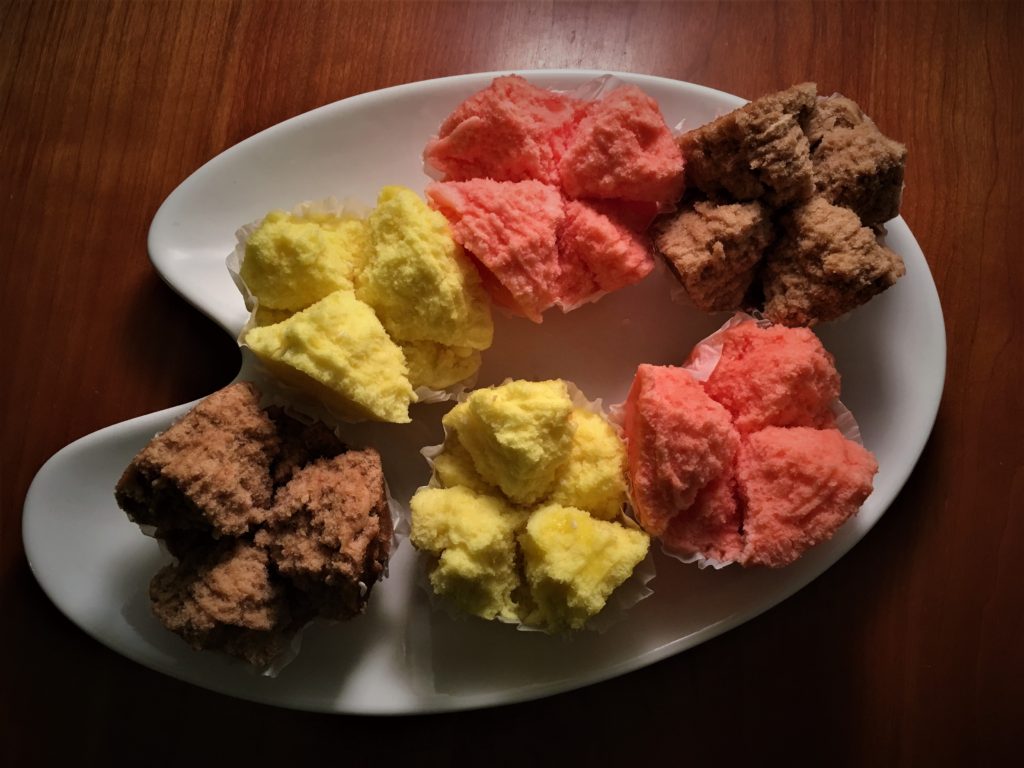I often point out grammatical errors that I heard on radio and/or TV shows to friends. One of them always responds: “Only people that had to study the language would notice these things.” It is very true that, being a non-native speaker, I try my best to use the language properly.
There is no such a thing as “verb tenses” in Chinese language. (On the other hand, there are many words and phrases that can reflect the timing of events and actions.) When I first started studying English, it annoyed me a great deal to have to learn the conjugation of strong verbs and to understand tenses. Italian is a language twice remote from my linguistic roots and, like any Romance language, it has a complicated system of verb tenses.
In Act II of Puccini’s Tosca, Scarpia, chief of the secret police, pressures the protagonist to give into his sexual advances, in exchange for the life and freedom of Cavaradossi, her lover and a supporter of revolutionary movement. At the moment of extremity, Tosca sings “Vissi d’arte.”[1]
Vissi d’arte; vissi d’amore
I used to live for arts; I used to live for love.
Non feci mai
male all’anima viva
I never did evil thing to any living soul.
Con man furtiva,
Quante miserie conobbi aiutai
With furtive hand,
I helped many people in misery as I knew.
Sempre con fè sincera
Always with sincere faith,
la mia preghiera
ai santi tabernacoli salì.
rose my prayer to the holy tabernacles.
Sempre con fè sincera
Always with sincere faith,
diedi fiori agl’altar.
I gave flowers to the altars.
Nell’ora del dolore
In the hour of sorrow
perchè, perchè, Signore,
perchè me ne rimuneri così?
Why, o why, Lord,
Why do you remunerate me so?
Diedi gioielli
della Madonna al manto,
I gave jewelries for the mantle of Madonna,
e diedi il canto
agli astri, al ciel,
che ne ridean più belli.
I also sent my singing to the stars, to the sky,
So, because with it, they would shine more beautifully.
Nell’ora del dolor
In the hour of sorrow,
perchè, perchè, Signor,
Ah, perchè me ne rimuneri così?
Why, why, Lord,
Ah, why do you remunerate me so?
When I first studied the aria, I noticed that almost all the verbs were in passato remoto (remote past).[2] It is a tense often associated with historical writing or storytelling, describing things that happened in the past and will not recur. The very first word “vissi” is first person/singular/passato remoto of “vivere” (to live). It is rarely used as it actually says, “Once upon a time, I lived.”
Tosca could have said, heroically, “Vivo d’arte; vivo d’amore” (“I live for art; I live for love”). She could even have said, “Sono vissuta. . .”[3] (“I have lived. . .”), giving a sense of how life had been and how it might continue. Clearly, she was distancing herself from the past, saying “I used to live for art; I used to live for love. . .”. Unfortunately, the desperation of cutting off one’s present realities from the past does not come through in English translation. Most singers are either ignorant of the complexity or simply setting it aside.
In all these years, I searched for the reason that the librettists[4] chose such strong tense. I addressed the questions to every soprano that passed through my door. I asked many reputable professionals. No answers.
Early last week, while working with a wonderful playwright/actress/singer on Tosca, I brought up the subject again. Her reaction was immediately different than most people. She asked a key question: “Did Tosca sing the aria before or after she caved in to Scarpia’s demands?” AFTER. Suddenly, it was clear to both of us that the moment of her surrender was a point of departure: A life of art, love, devotion and sincerity was no more. Tosca was eulogizing her own life and begging for a reason from the Lord.
I am a firm believer of the dramatic power of words, especially when combined with music. Since every language has its characteristics, in order to release such power, the interpreters must truly appreciate the choices of words as well as the construct of the text. Linguistic study could be a challenging task. Nonetheless, it is paramount for serious musicians.
[1]Vissi d’arte: Maria Callas
[2]The verb “rimuneri” (you remunerate) is in present tense.
[3]In conjugation of the verb “vivere,” auxiliaries “avere” (to have) and “essere” (to be) are both used. When associate with location, i.e. “Ho vissuto in Italia per un anno” (I have lived in Italy for a year), the auxiliary “avere” is used. When indicating being alive, “essere” should be used.
[4] Giuseppe Giacosa and Luigi Illica collaborated on the libretto of Tosca. They also cowrote the libretti of La Bohème.

